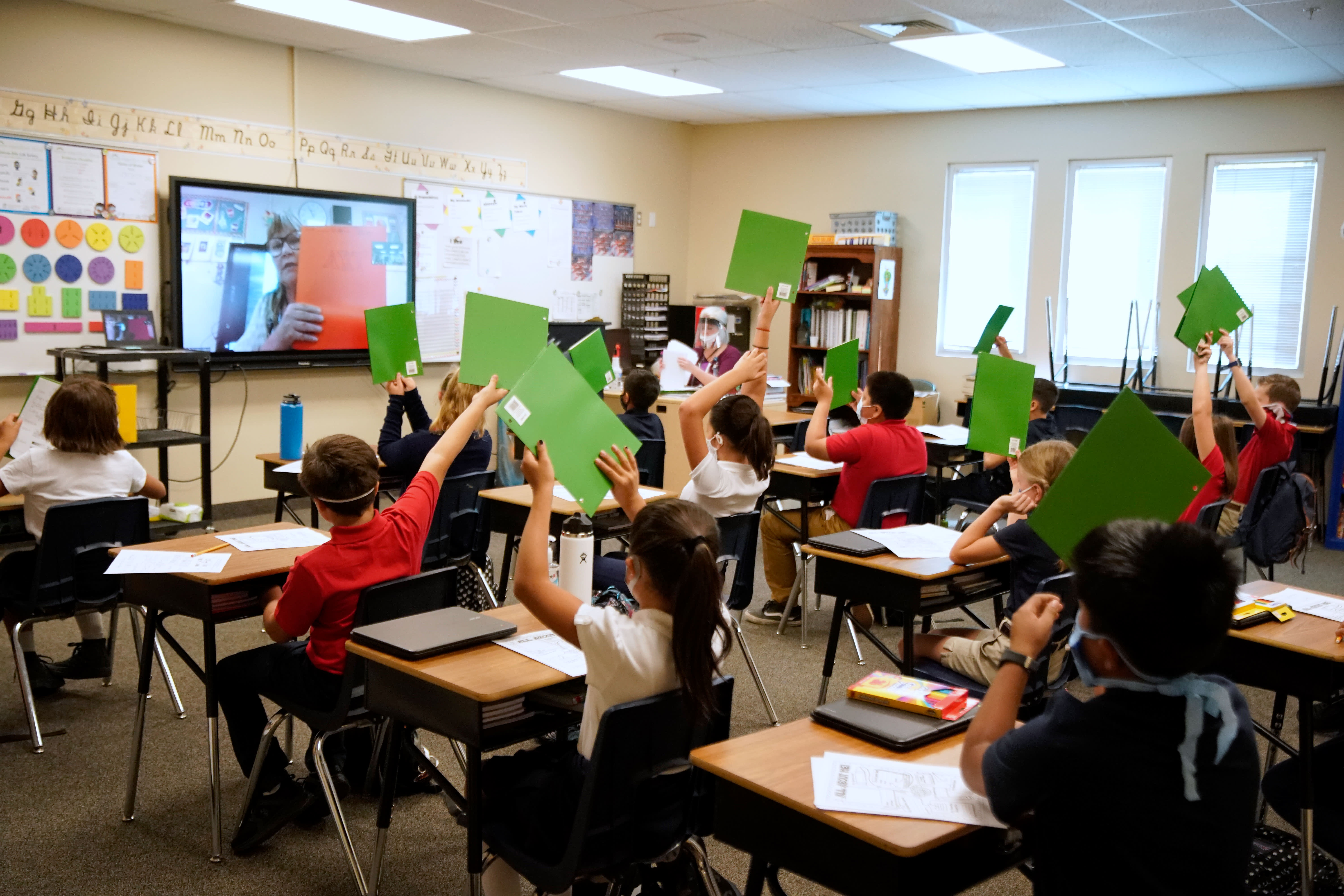U.S. economy faces $15 trillion hit as a result of school closures, OECD says

Students wearing protective masks raise their hands in a classroom as a teacher gives a lesson remotely at a public charter school in Provo, Utah, U.S., on Thursday, Aug. 20, 2020.
George Frey | Bloomberg via Getty Images
The Organization for Economic Cooperation and Development has warned the interruption to children’s schooling in the wake of the coronavirus pandemic could mean global economic growth is 1.5% lower on average for the rest of the century.
The intergovernmental economic organization said this projected loss of gross domestic product, which measures economic growth, would be equivalent to a total economic loss of $15.3 trillion in the U.S.
This prediction assumed U.S. students recorded a “corona-induced loss of skills” of one-tenth of a standard deviation, and on the basis that all cohorts returned to previous levels thereafter.
The OECD paper, published Tuesday and citing third-party data, estimated how students’ losing out on one-third of the school year would impact the global economy in the long-run.
It was estimated this loss of time in the classroom would lead to a loss of skills, and this, in turn, would negatively impact productivity. As a result, the total cost of missed schooling could amount to 69% of the current GDP for the typical country, the OECD said.
To be sure, this prediction assumed that only the current cohort of students would be affected by the closures and that future students would resume normal schooling.
The OECD said losses to economic growth could be “proportionately higher” if schools were slow to return to “previous levels of performance.”
For months, the majority of children around the world have been homeschooled, with many schools only staying open to the children of key workers. However, concerns have been raised that this period of homeschooling may have exacerbated learning gaps already exposed by the pandemic.
The OECD said that while educators have made a concerted effort to maintain learning during this period of homeschooling, children have had to rely more on their own resources to study remotely. Meanwhile, teachers have had to adapt their methods to educate students in ways in which they may not have been trained.
One suggestion in the paper to limit further setbacks in education, in the absence of a widely available vaccine, was to continue to build on the infrastructure for remote learning.
Beyond the pandemic, the OECD said that “there are evident benefits to students in expanding their learning time and opportunities beyond the school gate by being able to learn using a variety of distance learning approaches.”




